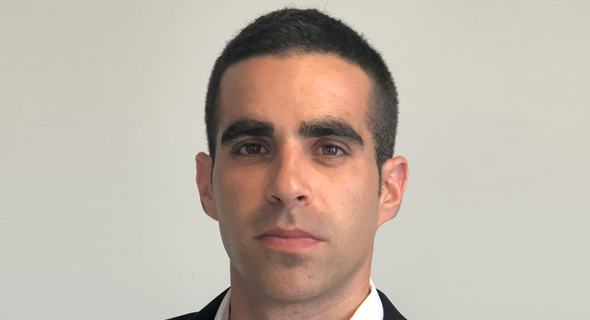Nadav Shimoni, Arkin Holdings: We are looking for products that solve a real unmet need
Speaking to CTech as part of a special investor survey, Nadav Shimoni, Head of Digital Health at Arkin Holdings, claimed that “high wages in tech are very harmful, as it reduces the number of people that stay long enough to develop their skills and contribute to a company”
“We are trying to be as helpful as possible for our portfolio companies and also for companies outside of our portfolio. Healthcare is hard and complex. Much is dependent on the companies’ capabilities to first understand the nuances of the industry and then to reach the right decision-makers with the right pitch,” says Nadav Shimoni, Head of Digital Health at Arkin Holdings.
Shimoni shared his views in CTech’s exclusive investor survey conducted with participants of the Poalim Hi-Tech and Calcalist Road Show event. The event brought together dozens of startups who pitched their venture to more than 20 leading Israeli investment groups and investors.

What trends are you most excited about investing in?
As a digital health focused investor, we are very much excited from the convergence of increased supply-demand mismatch around different sectors within healthcare, emergence of new business models (some are built around new technologies, some related to the changing regulation, others because of the industry maturation), evolvement of different incumbents (providers that start to be also payers, payers that also provide care, hybrid entities, etc.) and a rising class of “new-incumbents” – companies with scale and resources sufficient to be potential business partners / acquirers but still nimble enough to shorten GTM for startups who sale to them.
What’s your latest, most exciting investment?
Our latest investment was in a company called CareSyntax, with a very bold and broad vision of digitizing surgeries.
One of the major obstacles to understanding and utilizing what’s going on in surgeries is the need to converge data coming from multiple sources (pre / intra / post OP; EHR, labs, images, …) and fuse it into a holistic description of the clinical encounter. CareSyntax is doing exactly that. It is seamlessly capturing and converging all the relevant types of information (pre, intra and post OP) and making it available when it is needed and in the most actionable form for each relevant stakeholders, while also using feedback loops to make sure it is spot on. By having all the relevant data at the point of decision, surgeons can perform better, administrators can manage the surgeries workflow better and on top of it, the value and the risks of surgeries can (for the first time?) be accurately assessed and utilized in new business interactions between payers and providers.
Which industries seem well-positioned to thrive long term? What companies are you excited about (whether in your portfolio or not), which founders?
We are focused on digital health so I would address the question from that perspective. Within our industry, we are very bullish on companies that help those who are trying to provide better care rather than doing it by themselves. Couple of companies from our portfolio can serve as examples – Rhino health, Edocate, Eleos Health and CareSyntax.
What areas are either oversaturated or would be too hard to compete in at this point for a new startup?
Chronic care management is a good example. Too many companies competing on the same patients (demographics, socioeconomic status) and buyers (for example self-insured employers).
What are you - as an investor - looking for in an entrepreneur or a startup?
We are looking for products that solve a real unmet need and have clear cost-saving or revenue-generating aspects (i.e. not just a cool technology). Founders-market fit is also crucial and is an important part of the former.
What is your approach to VC involvement in the management of the companies they invested in?
We are trying to be as helpful as possible for our portfolio companies and also for companies outside of our portfolio. Healthcare is hard and complex. Much is dependent on the companies’ capabilities to first understand the nuances of the industry and then to reach the right decision-makers with the right pitch. We try to help with all of that and leverage Arkin’s cross sector expertise and network, as an investor with $2 billion AUM in healthcare and more than a decade of investments.
We usually take board seats, either as directors or observers, mostly to have a better understanding of the company’s situation and know when we can offer relevant help. We are against forcing decisions or being there when we are not wanted. We invest in teams and companies that we believe in and as such trust them to handle by themselves.
What should be the level of a fund's involvement in solving a company's HR problems?
Pursuant to the last item, we are trying to be helpful with hiring as well. In healthcare in many cases it is much more about quality than quantity (having the right VP sales for example) and we help our companies to reach the right candidates and screen them.
Where will the solution to the HR crisis come from?
The burst of the current bubble :)
High wages in tech: how harmful it is to companies, to the investors?
Very harmful, as it’s part of the cycle that drives valuation to unreasonable places and reduces the number of people that stay long enough to develop their skills and contribute to a company in a more meaningful way.
Share with us your golden tip for an entrepreneur presenting a pitch.
Do your diligence on the investor before the meeting. First and foremost, to understand if he or she is a good fit for you (and if not, don’t waste your time with him / her) and second of all, it can really make the conversation more efficient.



